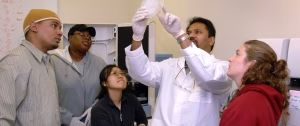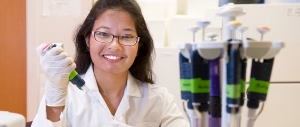The Department of Biology has been designated by West Virginia State University as a “Peak of Excellence” and as a “Program of Excellence” by the West Virginia State University System Board of Directors.
The Department of Biology provides students with an opportunity to learn about science in general and about the science of Biology specifically. Courses are designed to serve a diverse community of students planning careers in science, medicine, or allied health sciences; planning careers as science teachers; and those with an avocation interest in living organisms.
Our Programs
Bachelor of Science in Biology (BS)
The department of Biology exists to provide students with an opportunity to learn about science in general and about the science of Biology specifically. Courses are designed to serve a diverse community of students planning careers in science, medicine, or allied health sciences; planning careers as science teachers; and those with an avocation interest in living organisms.
Master of Arts in Biotechnology (MA)
At West Virginia State University, you will learn state-of-the-art Biotechnology as you conduct research that addresses environmental, agricultural, and bio-medical problems. Our program provides instruction in the broad field of Biotechnology, as well as specialized training in the many sub-disciplines of Biotechnology.
Master of Science in Biotechnology (MS)
At West Virginia State University, you will learn state-of-the-art Biotechnology as you conduct research that addresses environmental, agricultural, and bio-medical problems. Our program provides instruction in the broad field of Biotechnology, as well as specialized training in the many sub-disciplines of Biotechnology.
No results found.
Faculty & Staff
Dr. Tom Hutto – Professor Emeritus



















